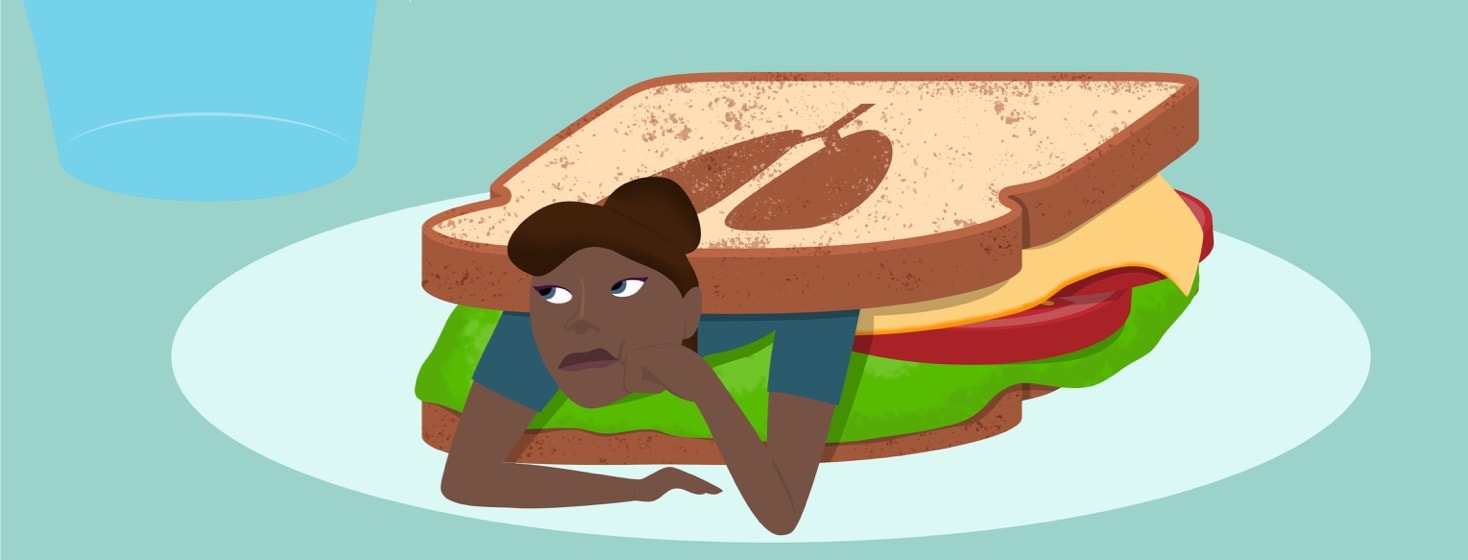Lung Cancer and the Sandwich Generation
What is the Sandwich Generation? According to Wikipedia, the Sandwich Generation is a generation of people (usually in their 40s to 70s) who care for their aging parents while supporting their own children.
As more people are being diagnosed with lung cancer at younger ages, there is a great deal of overlap between the Sandwich Generation and people living with lung cancer. Like myself, many of us have both dependent children and elderly parents. This adds an increased stress load to a diagnosis of lung cancer.
My mom relies on me for support
I’m an only child. My mom is 88 years old and I am her primary caregiver. My dad passed away from congestive heart failure in 2015 and my mom moved from their retirement house in Florida to the Chicago suburbs to be closer to me, her only living close relative.
Although she lives in an independent living facility where there are many options for new friendships, shared meals, and activities, my mom does not take advantage of this. She and my dad had been married for 56 years and she is not comfortable doing things without him. Although my mom is still fairly mobile and mentally sharp, she is not used to making her own decisions and instead she relies on me to help with her emotional and physical needs.
Roles have reversed from my childhood
Living with a disease like lung cancer, I find that this reliance often weighs heavily on me. While I wish I could share concerns about my own health with my mother, I can’t do this because this action would result in her getting upset and then my needing to comfort her. Our roles have reversed from my childhood; now I am the one who gives care and solace to her, not the other way around. Sometimes I end up feeling resentful about this, but I know the situation isn’t really her fault, so then my resentment turns to guilt.
I try to assuage my guilt by calling and visiting my mother frequently and including her in gatherings and outings with my husband and her grandchildren, but she frequently does not want to leave her apartment. We all go visit her as well, but it is difficult to organize full family visits very often since we all have busy schedules and my older son goes to college on the east coast. I persist, however, because I want my 17 and 19 year old sons to have good memories of their grandmother. She is their only living grandparent, as my husband’s parents have both passed away.
The other half of the sandwich...my children
This brings me to the other half of the sandwich. Now that my boys are teenagers, they are not dependent on me as much as they used to be for all of their daily needs, but I am still important in their lives especially when they need to make major decisions. I’m a caregiver for them as well as my mother, although more for emotional needs now that they are older as opposed to physical needs.
Similar to how I act with my mother, I also don’t talk too much about my own health with my children. My boys have their own lives and their own concerns to handle such as exams, college applications, college classes, friends, girlfriends, etc. I don’t feel that it would be fair to add any additional stresses to the equation unless there was something new that they needed to know. I pretty much keep any worries to myself, only sharing with my husband and some of my “lung cancer sisters.”
Who else out there considers themselves part of the Sandwich generation? How do you handle dealing with caring for yourself in addition to dependent children and elderly parents?
Editor’s Note: We are extremely saddened to say that on June 23, 2024, Ivy Elkins passed away. Ivy’s advocacy efforts and writing continue to reach many. She will be deeply missed.

Join the conversation